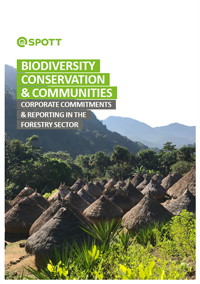At least a quarter of the world’s land area is owned, managed, used, or occupied by indigenous peoples, encompassing up to 80% of the planet’s biodiversity. Indigenous and local communities can and should be essential partners in the conservation of forest ecosystems and their inherent biodiversity. More than 90% of Indigenous Peoples’ and Local Communities’ (IPLC) lands are in good or moderate ecological condition.
From an estimated global rural population of 3-4 billion, about 1.3 billion forest-dependent people live in forest landscapes as Indigenous Peoples or Local Communities (IPLC), and several studies suggest that cooperation with IPLC for conservation purposes has positive impacts on the ecological condition of forest ecosystems and their inherent biodiversity values.
Positive outcomes for both community livelihoods and conservation come from cases where Indigenous peoples and local communities play a central role, such as when they have substantial influence over decision making or when local institutions regulating tenure form a recognized part of governance. “In contrast, when interventions are controlled by external organizations and involve strategies to change local practices and supersede customary institutions, they tend to result in relatively in-effective conservation at the same time as producing negative social outcomes.”
Despite their role as the main stewards of the world’s forests and biodiversity, IPLC lands are under increasing pressures due to commodity-driven industries such as timber and pulp or industrial agriculture, with potential negative impacts. In this regard, ZSL believes that sustainable forest management requires a meaningful commitment to securing IPLC rights and land tenure and guaranteeing Free, Prior, and Informed Consent (FPIC). Hence, the logging industry has a fundamental responsibility to engage indigenous and local communities in timber and pulp value chains, while facilitating sustainable development and biodiversity conservation in forest production landscapes.
This report looks at the potential for the timber and pulp sector to contribute to securing IPLC rights in forest production landscapes, drawing on key findings of the analysis of data from ZSL SPOTT’s 2021 assessments of 100 timber and paper producers, processors and traders, looking at key environmental, social and governance (ESG) issues.
ZSL is strongly urging timber and pulp supply chain actors to publicly disclose all of their sustainability policies so buyers, financial institutions and other stakeholders can assess the quality of corporate commitments.

